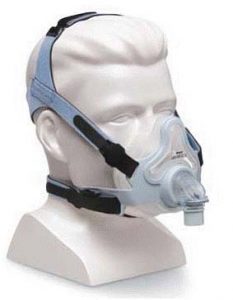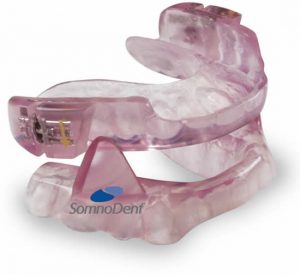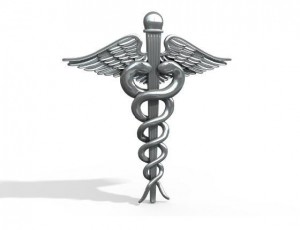By Raul Hernandez
In the days when I seemed to be hopelessly stuck on stupid, doctor visits were on the very bottom of my to-do list.
If something was wrong with me, I didn’t want to know.

I’ve had good health insurance plans through the places where I worked but used it when it was really, really necessary. Then, I’d go to the emergency room, which I used as my urgent care clinic before urgent care clinics started popping up around the country.
I could have walked into a quack’s office back then, and if he had suggested I get a hysterectomy, I would have nodded and said: “Sure. Let’s get it done so I can go on with my life.”
I was like other people who believe that doctors walk on water. Therefore, any prescription that they write or diagnosis they make is good and should be followed religiously without question.
Sleep Apnea and a courtroom changed all that along with the dozens of a federal health-care strike force stories I have posted in recent years. Since 2007, the task force has arrested 2,300 defendants, mostly health-care professionals, with stealing more than $7 billion of dollars from federal health care programs.
The Rude Awakening
One day, three years ago, I was covering a court hearing and I started nodding off, a couple of times. I was the only one in the audience but I tried desperately to stay awake and take notes. I was losing the battle to stay awake. When this happened, I usually went to the restroom and splashed water on my face or drank a large cup of coffee. That did the trick and I returned to the courtroom.
But this time, it didn’t. I started nodding off again and again and again. One time, I almost hit my head on a bench.
I shook my head hard to rid myself of the slumber. I was losing this battle. When I felt someone staring, I turned around and a sheriff’s deputy who was acting as the courtroom bailiff was just outside the two tinted double-glass doors watching me like a hawk.
He knew I was a newspaper reporter but he kept staring, sizing me up.
It dawned on me. Maybe, he thought I was a heroin addict on a high since it wasn’t unusual that drug addicts’ nod off in the middle of court hearings.
Weeks later, I ended up at a neurologists’ office.
After a five-minute exam, the neurologist said I had a small throat opening, wide tongue and thick neck. I needed an overnight sleep test. A week later, the test indicated that I had sleep apnea, which gradually takes a toll on the mind and body.
The CPAC Contraption
 I’d have to be hooked up to this machine called a CPAC or a continuous positive airway pressure. It comes with a long plastic hose and a small metal pan that must be kept filled with distilled water. A plastic mask covers the mouth and nose and elastic straps wrap around the head.
I’d have to be hooked up to this machine called a CPAC or a continuous positive airway pressure. It comes with a long plastic hose and a small metal pan that must be kept filled with distilled water. A plastic mask covers the mouth and nose and elastic straps wrap around the head.
When you turn on the machine, it shoots air pressure up into the nostrils throughout the night. I know what it’s like to be a Michelin tire hooked up to an air-pressure hose at a gas station.
For a while, sleep was sweet.
Sometimes, however, I’d wake up, gasping for air, fighting with the plastic hose as though it were an octopus and end up ripping off the mask from my face and flinging it across the room.
After a while, I got fed up with wearing this contraption.
During a follow-up visit a few weeks later, the neurologist who prescribed the CPAC machine got upset and said the computerized chip in the machine indicated that I had not been using it on a regular basis.
Background: This neurologist I found out later also owns the sleep center where I took the sleep test and is part of the health care system where my primary doctor, an internist, also works.
The neurologist kept asking why I wasn’t using the machine. I kept telling him why, and soon, I found myself raising my voice.
“I just told you. What? Do you want a statement? Something in writing?” And, finally, “I’m done, alright. Later.”
I left.
I felt bad but many months later when I look at this guy’s ratings on Yelp, and he had two reviews and both of his patients’ reviews summed up this jackass with a medical degree this way:
The one review stated, in part: “He didn’t seem to listen to my symptoms and complaints. He kept cutting me off. He claimed I had an exertion headache, even though some of the headaches occurred when I was sitting motionless, doing nothing. I went to another neurologist who gave me a thorough evaluation lasting 45 minutes, and who conducted additional tests to determine the cause of my headaches, billed a lot less, diagnosed me with cervicogenic headache rather than exertion headache, and offered treatment options.”
Another review stated:
“HORRIBLE man and doctor. The singularly worst experience with anyone (doctor or other sort of service professional) I’ve ever had.”
And, “He made multiple personal, insulting, and offensive comments during the appointment. It reached a point where it was so awful that I firmly but politely told him that those remarks were “not nice” and “unkind” and that “he shouldn’t say those sort of things to patients.” I expected some sort of confrontation or an apology, but he didn’t say anything at all.”
Normally, I would have called the CEO of this health care system and told him about my experience with this neurologist and would have lodged a complaint with the state medical board about his unprofessionalism
But I just figured it was a mood swing, a symptom of sleep apnea. So I didn’t do anything and have never returned.
Research Leads to a Dentist
After packing the CPAC back into the box, I did some research and found out that there was a device, a so-called sleep apnea mouth guard. I could use that wouldn’t require the use of electricity, distilled water, a long plastic hose or a mask.
 A dentist made dental imprints of my teeth, and I later got a plastic mouthpiece designed to pull out the jaw to open the airways.
A dentist made dental imprints of my teeth, and I later got a plastic mouthpiece designed to pull out the jaw to open the airways.
So I had a choice. The mask or sleeping with a rock in my mouth.
But in-between the mask and the sleep apnea mouth guard. I had trouble sleeping without the machine. I mentioned this to my primary care doctor toward the end of an interview.
The doctor asked three questions: Am I depressed? No, not really. Have you been depressed anytime this week? Yeah, who hasn’t? I get bummed out sometimes. Is this depression more than three times this week? Well, yeah. But doesn’t everybody get bummed out.
He said he was going to give me something to help me sleep. Thanks, doc. I will take it only when I need it but most of the time I am okay.
End of interview.
I later went to pickup my prescription. I read the large print instructions that came with the prescription. I asked the pharmacist what is this? It’s trazodone.
A what? Trazodone, an anti-depressant, she repeated. I was upset.
I did some research and found out that it is used to treat depression. But the medicine came with a lot of baggage.
Common side effects include sleepiness, dizziness and blurred vision.
 Worse, there are very serious possible side effects including thoughts of suicide or dying; attempts to commit suicide, new or worse depression, new or worse anxiety, agitation, dangerous impulses, acting aggressive, angry or violent, mood swings and insomnia.
Worse, there are very serious possible side effects including thoughts of suicide or dying; attempts to commit suicide, new or worse depression, new or worse anxiety, agitation, dangerous impulses, acting aggressive, angry or violent, mood swings and insomnia.
I wrote an email to doctor basically telling him that I wasn’t happy with his anti-depressant prescription to help me sleep. I stated that he should have told me what exactly I was putting into my mouth and letting me know about the possible and very serious side effects.
He never replied. I have cut ties with him.
Medical Knowledge Saves Time and Money
Since sleep apnea and reading some of the recent headlines about those in medical profession who steal billions of dollars from Medicare and Medicaid, such as the California doctor who plead guilty last week to $2.4 million Medicare fraud scheme.
To find many of these stories do a search on this website for Medicare or health care fraud.
I have done a lot of research on the Internet on how to find a physician, read medical tests and what they mean and much more. It’s been fun because I learned a lot about medicine, doctors and health care.
For example, I know how to read medical lab tests for bilirubin, alkaline phosphatase, albumin or globulin and understand their meaning with help from such websites as Lab Tests Online or the Mayo Clinic.
Does that make me a physician? No, but it allows me to ask a doctor intelligent questions and participate in decisions about my health.
Last month, Consumer Reports had an excellent article titled: “How to Find a Doctor.”
Click here to read the article: Consumer Reports
“Use your first visit as a litmus test. Some factors to consider: Does the doctor listen to you without interrupting? Does she fully answer your questions? Does she explain your diagnosis and treatment, and specify a date for a follow-up visit?” the article states.
The report also lists a state-by-state listing of links to state medical boards and other resources or checking up on doctors.
The bottom line is that doctors aren’t gods and many are profit-motivated and are in the pockets of pharmaceutical companies. A consumer needs to educate him or herself to learn what he or she is putting in their mouths and how to read medical reports or find possible ways to treat a health problem without the use of drugs.
BTW: I found out that a good and natural way to fall asleep is by eating dark cherries or pumpkin seeds or both.
I’m serious. Look it up.

